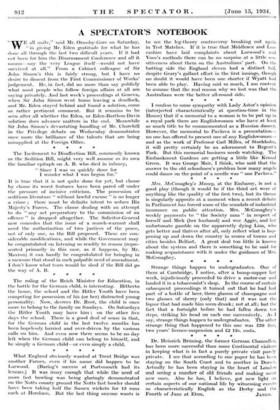The Incitement to Disaffection Bill, commonly known as the Sedition
Bill, might very well assume as its own the familiar epitaph on A. B. who died in infancy, " Since I was so quickly done for I wonder what I was begun for."
It is true that it is not quite done for yet, but clause by clause its worst features have been pared off under the pressure of incisive criticism. The possession of seditious literature " without lawful excuse " is no longer a crime ; there must be definite intent to seduce His Majesty's Forces. The clause dealing with an attempt to do " any act preparatory to the commission of an offence " is dropped altogether. The Solicitor-General now concedes that the issue of a search-warrant shall need the authorization of two justices of the peace, not of only one, as the Bill proposed. These are con- siderable modifications, and while the Government may be congratulated on listening so readily to reason (repre- sented primarily in this case, as it happens, by Mr. Maxton) it can hardly be congratulated for bringing in a measure that stood in such palpable need of amendment. I don't know what tears would be shed if the Bill did go the way of A. B.
















































 Previous page
Previous page